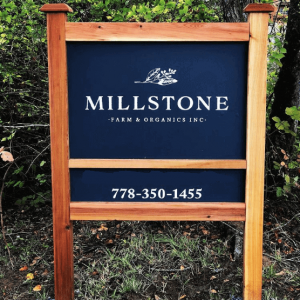Who Knew! Straws Made of Hay!
 Something new for celiacs to consider? With the planet drowning in plastic, HAY! Straws invites us to join the straw-volution and help shift the way we use plastic – but they are using wheat as the replacement.
Something new for celiacs to consider? With the planet drowning in plastic, HAY! Straws invites us to join the straw-volution and help shift the way we use plastic – but they are using wheat as the replacement.
HAY! Straw sare made from natural wheat stems and are 100% biodegradable, which means they won’t linger in landfills, polluting our land or oceans. They are similar in feel and function to the plastic straws we’ve all become so accustomed to, but without the toxins and the damaging footprint on our earth. Unlike paper straws, HAY! Straws are made from a renewable source, and best of all, they don’t get soggy!
HAY! Straws are the byproduct of wheat production. Wheat is typically grown for its grain, which gets made into flour and other food products. Once the wheat plant reaches maturity and turns golden yellow, the grain is harvested off. The wheat stems get cut and made into things like hay for animal feed and, HAY! Straws’ case, straws.
“HAY! Straws® are independently lab tested as gluten-free. Our Original HAY! Straw is made from wheat stems and does not contain wheat grain.”
HAY! Straws sources their wheat stems from local farms in South East Asia, the largest producer of wheat in the world. They hand select the best quality stems for HAY! Straws and then cut them into drink sized lengths— about eight inches. No two straws are ever the same, because of naturally occurring variance in the wheat plant.
HAY! Straws then go through a rinsing process to remove any speck of dirt, or even insects. The straws are soaked and rinsed three times with sterilized water to ensure hygiene, then air-dried. They’re checked for quality, then hand-packed into cardboard boxes, adding the final plastic-free packaging touch.
haystraws.com
[email protected]
Facebook • Instagram • Twitter
Celiac Canada’s Position Statement on Straws made from Wheat (https://www.celiac.ca/straws)
Are straws gluten free? Issued: June 2023 by Nicole Byrom, consulting Registered Dietitian for Celiac Canada.
In today’s environmentally focused world, single use non-plastic and reusable straws are increasing in popularity. The safety of single use biodegradable straws has come into question for the celiac community, especially those from a paper source.
Celiac Canada [CC] connected with the Canadian Food Inspection Agency (CFIA) in order to get a better understanding of any risks that may be present with using paper straws.
CFIA states: “While residual proteins may be present in these raw materials; in our opinion the cleaning and processes involved in the production of the plant-based final products would not leave proteins that would result in adverse health reactions. There have been no reports of adverse reaction resulting from plant-based plastics or paper packaging/contact products reported to Health Canada by the CFIA”.
This is good news for our community! Here is a breakdown of some commonly used straws and their safety for the celiac and gluten-free community:
- Paper Straws. SAFE. Single use. There is no evidence to suggest that these straws contain any gluten.
- Bamboo Straws. SAFE. Reusable. Made from a sustainable ingredient. Good for hot and cold liquids.
- Silicone Straws. SAFE. Reusable. Good for multiple time use. Great for kids and come in fun colours!
- Stainless Steele Straws. SAFE. Reusable. Easy to clean.
- Pasta Straws. UNSAFE. Pasta straws are just that, tubular lengths of uncooked pasta that do contain gluten. We have found some gluten-free pasta straws, but these would be special order on-line, and unlikely to be served in a restaurant or other food establishment.
CC recommendations:
- Most single use, disposable straws are gluten free, with minor exceptions including pasta straws. If you are still concerned about a possible exposure to gluten from straws you still have some options:
- Bring your own straw. Foldable, reusable straws can be purchased on-line or in many stores. These are an easy option to take with you wherever you go.
- Don’t use a straw. Sip from a cup the old fashioned way.
- Ask what your straw is made from. Be your own advocate.













